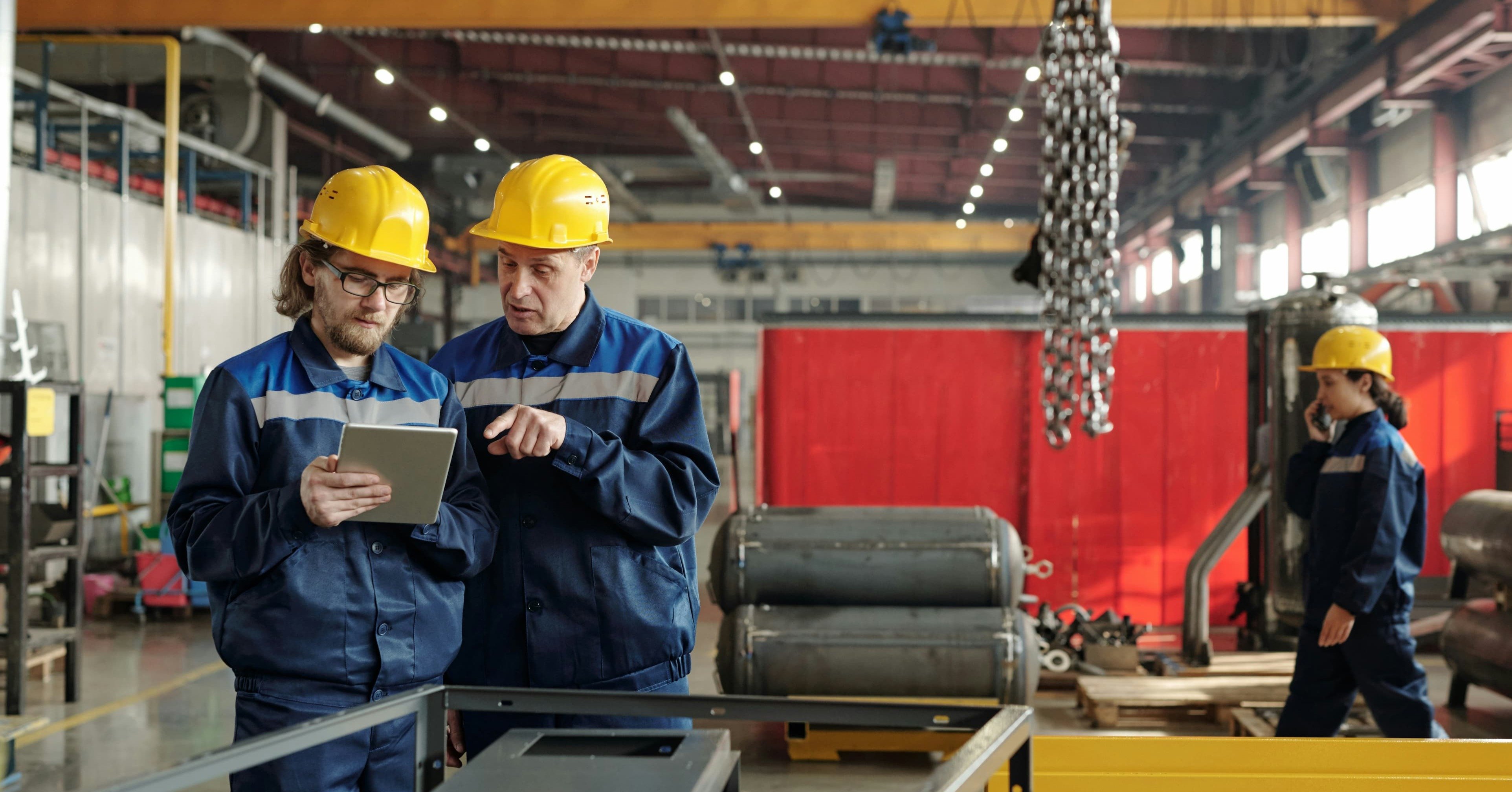If you’re searching for a job, you may see listings for both warehouse and factory positions that don’t require prior experience. Sometimes, these are even in the same building. A question you might ask is: What is the difference between warehouse and factory jobs?
The short answer is this: factory jobs focus on making products, while warehouse jobs focus on storing, organizing, and moving parts or finished goods. Both settings often include entry-level positions, are physically active, and provide on-the-job training, but the day-to-day work and environments can feel very different.
Below is a breakdown of the key differences to help you decide which type of job is the better fit for you.
What is the Key Difference Between Warehouse and Factory Jobs?
The main difference between warehouse and factory jobs is the role they play in the supply chain.
Factory workers are involved in producing or assembling products.
Warehouse workers handle receiving, storing, organizing, and shipping parts or finished products.
Both roles can be physically demanding and typically offer on-the-job training, but they involve different tasks, environments, and schedules.
Warehouse Jobs: Overview, Duties, and Environment
Warehouse jobs cover a wide range of work related to receiving, storing, and distributing products. These roles exist across many industries, including logistics, big-box retail, grocery distribution, and fulfillment centers.
The most common tasks and daily job duties include:
- Loading and unloading trucks
- Organizing stock
- Packing and preparing items for shipping
- Maintaining a clean, safe workplace
- Verifying the contents of packages to ensure accuracy
- Identifying lost or missing merchandise
- Keeping an inventory control log updated
- Training new workers
What Do Warehouse Workers Do?
Warehouse work often requires standing, walking, lifting, and working on your feet for long periods. Some environments may involve temperature-controlled spaces, such as grocery or food distribution warehouses, while others operate in standard indoor settings.
Many warehouse roles offer flexible schedules, including part-time, weekend, or overnight shifts, which can appeal to workers looking for schedule variety.
Do You Need a Degree to Be a Warehouse Worker?
No. Most workhouse jobs don’t require a college degree, and some don’t require a high school degree. On-the-job training is common, and experience gained in warehouse roles can lead to advancement opportunities over time.
Related Content: What Kind of Work Can You Get in a Warehouse?
Factory Jobs: Overview, Duties, and Environment
Factory jobs, also called manufacturing, production, or assembly roles, focus on making products. These positions typically take place in manufacturing facilities with structured workflows and defined processes. These might take place in the same building that warehouse jobs do, or they might be in a separate location.
The most common tasks and daily job duties in this role often include:
- Operating machinery
- Assembling products or components
- Completing quality control checks
- Following safety procedures
Do You Need a Degree to Be a Factory Worker?
No. Like with warehouse jobs, most factory jobs don’t require a college degree and many don’t require a high school degree either. Factory jobs provide on-the-job training, especially for entry-level positions. Workers are trained on equipment use, safety standards, and production procedures specific to the role.
Related Content: 10 In-Demand Manufacturing Jobs That Don't Require a Degree
What Do Factory Workers Do?
Factory work is often repetitive and detail-oriented. Some roles involve standing or sitting in one place for long periods while performing the same task throughout a shift. Because machinery is often involved, factories typically have strict safety rules and training requirements.
Related Content: Find Factory Jobs Without a Diploma
Benefits of Factory and Warehouse Work
Work in both environments can be rewarding and offer opportunities for career growth. Additional training and certifications, safety protocols and records can boost your resume as well as your experience in the job over time.
Benefits of Warehouse Jobs
- Competitive pay
- Entry-level openings
- Flexible scheduling options
- Physically rewarding for active workers
Benefits of Factory Jobs
- Competitive pay
- Skill development
- Entry-level accessibility
- Predictable shifts and routines
Whether you’re new to the workforce or looking for a change, both warehouse and factory jobs offer solid opportunities depending on your interests and work style.
Strom Engineering connects job seekers with warehouse, manufacturing, and grocery-related roles across the country. Browse our open jobs by industry to find a position that fits your experience, schedule, and goals.
Strom Engineering is a national staffing and recruitment agency, with a particular focus on manufacturing, engineering, assembly, and other trade positions. We match skilled candidates to temporary or project staffing positions. Learn more about how it works and check out our case studies for more information.

